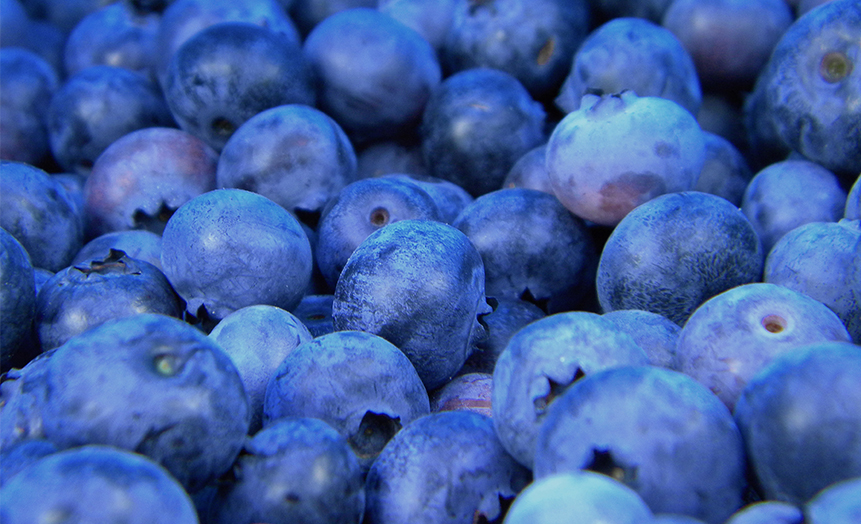Anti-Angiogenesis Foods: How the Foods You Eat Can Fight Cancer
Blood vessels criss-cross our entire bodies, providing all of our tissues with the oxygenated blood they need to survive. In some cases, development of new blood vessels is a positive process that helps new tissues receive crucial nutrients. In other cases, as with cancerous tumors, the creation of new blood vessels can harm you.
What Is Angiogenesis?
Angiogenesis is the process by which new blood vessels are created. There are two primary ways in which the body makes new vessels. Vasculogenesis refers to the creation of of brand new blood vessels from precursor cells. In contrast, angiogenesis relies on the presence of existing vessels. During angiogenesis, existing vessels sprout or branch to form new blood vessels.
It is important to note that angiogenesis is a normal and healthy physiological process. During human growth and development, new tissues are created at a fast rate, necessitating the creation of novel blood vessels. During development, angiogenesis is a critical process for delivering oxygen to these new tissues. Angiogenesis is also beneficial during the wound healing process, when damaged tissues need the nutrients found in blood to heal properly.
In other cases, however, angiogenesis can be a harmful process. For example, cancerous cells are those that have become dysregulated and divide uncontrollably. In order to continue dividing, tumors require a blood supply to provide essential nutrients. By secreting growth factors that stimulate angiogenesis, tumors receive the blood vessels they need to grow larger and larger. Thus, inhibiting angiogenesis is a possible therapeutic target for cancer and related illnesses.
Why Fighting Angiogenesis is So Important
The National Cancer Institute is actively researching treatments that can inhibit the process of angiogenesis. Their rationale is that by inhibiting the growth of new blood vessels, tumors can be cut off from a necessary source of nutrients. This would, in turn, cause the tumor cells to die. Thus far, there are a few medications that perform anti-angiogenesis activity in specific forms of cancer. The scientific evidence looks promising regarding the ability for anti-angiogenesis medications to prevent the spread of cancer cells.
Unfortunately, anti-angiogenesis drugs come with side effects that may make them difficult or impossible for some patients to use. Furthermore, it would be most beneficial to cut off the angiogenesis process before it even begins. In this situation, healthy individuals could take advantage of products with anti-angiogenesis properties, lowering the likelihood that they would develop harmful cancers. In fact, eating certain foods has been shown to lower the amount of angiogenesis that occurs in the body, which may prevent the onset of certain cancers.
Anti-Angiogenesis Foods and Their Properties
The anti-angiogenesis movement was inspired by a physician named Dr. William Li. As president and director of the Angiogenesis Foundation, Dr. Li is spreading his message about the power of anti-angiogenesis foods to decrease cancer risk. Although this field of research is still in its infancy, there is compelling evidence suggesting that certain foods may lower risk of cancer by inhibiting angiogenesis processes.
When becoming interested in this area of research, Dr. Li took note of research in car accident survivors that showed that 40% of middle-aged women had microscopic areas of breast cancer tissue, while 50% of men had microscopic prostate cancers, despite showing no overt clinical signs of cancer. These tiny cancers likely form in our bodies as we age. If they stay smaller than the tip of a ballpoint pen, they do not cause us any harm. However, these tiny cancers are simply waiting for an opportunity to expand to become full-blown tumors. Angiogenesis provides that expansion opportunity. The process of angiogenesis creates a direct fuel line to the microscopic cancers, causing them to balloon into full-sized tumors. So what sets those who undergo the angiogenesis process apart from those who live with microscopic cancers and never come to harm?
Dr. Li hypothesized that the foods we eat play a major role in determining our likelihood of getting cancer. In a 2012 paper published in the Journal of Oncology, Dr. Li noted that numerous vitamins and minerals have anti-angiogenic properties. These include retinoids (vitamin A), vitamin D3, curcumin, linoleic acid, selenium, and ellagic acid. Thus, it stands to reason that eating foods high in these nutrients may decrease cancer risk.
How to Eat a Balanced Diet with Plenty of Anti-Angiogenesis Foods
So what foods are most beneficial in lowering the rate of angiogenesis in the body? Eating a wide variety of fruits and vegetables is a great start. The following foods have been shown to have anti-angiogenic effects:
- Berries, including blackberries, blueberries, raspberries, and strawberries
- Avocados
- Citrus fruits, such as lemons, limes, and grapefruit
- Grapes
- Cherries
- Tomatoes
- Leafy green vegetables, such as mustard greens, spinach, or kale
- Beets
- Broccoli
- Radishes
- Fatty fish, including halibut, salmon, mackerel, or sardines
- Dark meat of poultry
- Beans
- Tofu
- Nuts and seeds
- Brown rice
- Sunflower seeds
- Quinoa
- Chocolate
- Honey
- Olive oil
As you can see from this list, the majority of anti-angiogenesis foods are plant-based. The best way to get these foods in your diet is to adopt a Mediterranean-style diet. This diet emphasizes plenty of fresh fruits and vegetables, whole grain products, nuts and seeds, and olive oil. Eating across the color spectrum of fruits and vegetables ensures you get a variety of nutrients with anti-angiogenesis properties. Lean protein sources primarily include fish and legumes. Although sweets should be enjoyed in limited quantities, dark chocolate or desserts flavored with honey are good choices.
Adopting this style of diet can significantly reduce your risk of cancer. By providing you with nutrients that inhibit angiogenesis, it may prevent microscopic tumors from growing into larger cancers. The diet may also lower risk of obesity and cardiovascular disease.
XOXO Tina
Source
http://www.cancer.gov/about-cancer/treatment/types/immunotherapy/angiogenesis-inhibitors-fact-sheet
http://www.ncbi.nlm.nih.gov/pmc/articles/PMC3184418/
http://www.standup2cancer.org/article_archive/view/foods_that_fight_cancer
http://www.eattobeat.org/food





